Student Design Awards winners: Tomorrow’s menu
Brief 8: How might we promote new relationships to food that are more secure, regenerative and culturally appropriate?
Winner: MYCOPOD
MYCOPODs are devices inserted into the ground in farmland that utilise the symbiotic relationship between plants and fungi designed to aid UK farming.
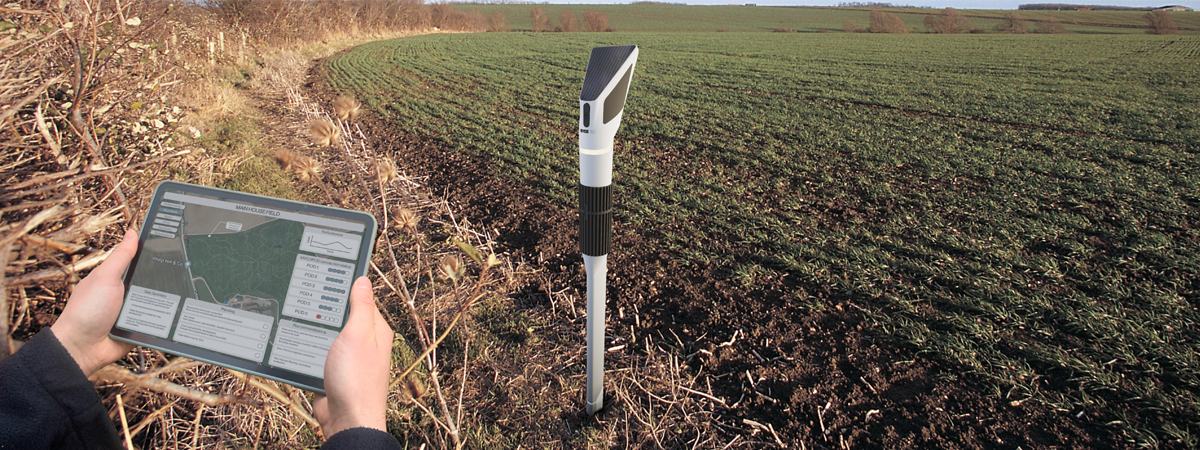
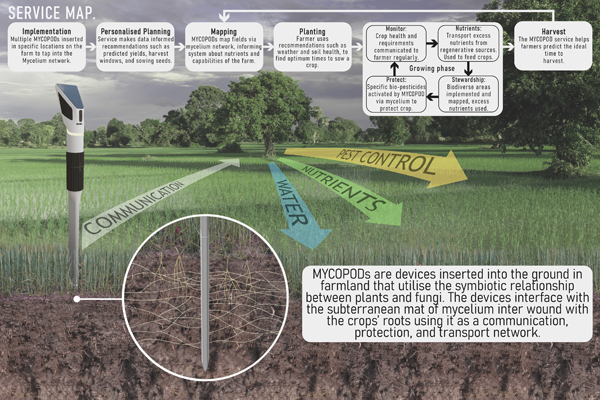
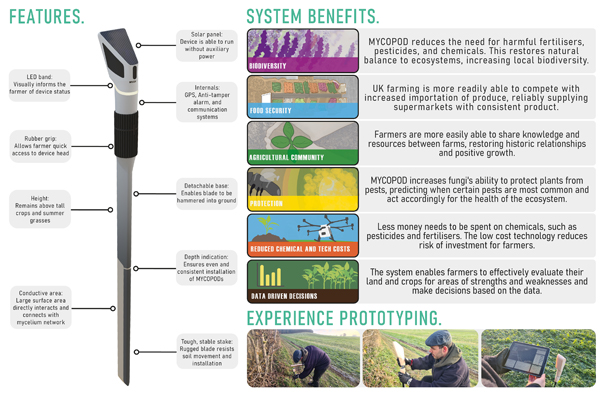
MYCOPODs create a communication, protection and transport network. This innovation has many benefits such as reducing the need for fertiliser by programming mycelium to move nutrients from nutrient banks and bio-diverse areas into crops. MYCOPODs will create impact by restoring natural balance to ecosystems and increasing local biodiversity.
Aaron Clark, Jordan Davies, Sebastian Hale and Reuben Parry
Loughborough University, England
Winner of £2,000 Future Food Award
Commendations
Highly commended
 Kok Ian Saw, Plymouth University, England
Kok Ian Saw, Plymouth University, England
MUNCH Project: Community-based system design for incorporating invasive species into our daily menus.
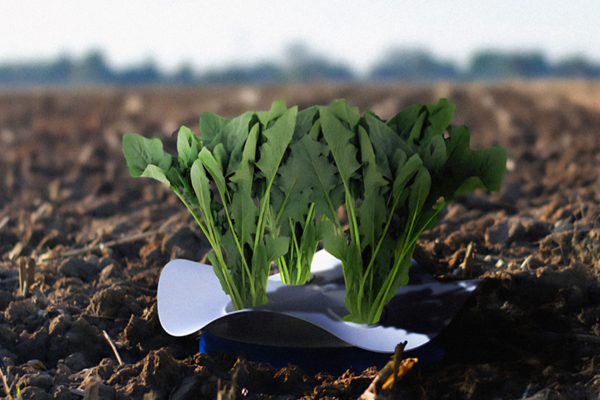 Andrew Quintal-Steytler, University of the West of England, England
Andrew Quintal-Steytler, University of the West of England, England
Krafty Krop: A more sustainable and affordable means of producing food using a low-tech hydroponics system that promotes the use of discarded materials and urine as a fertiliser.
Commended
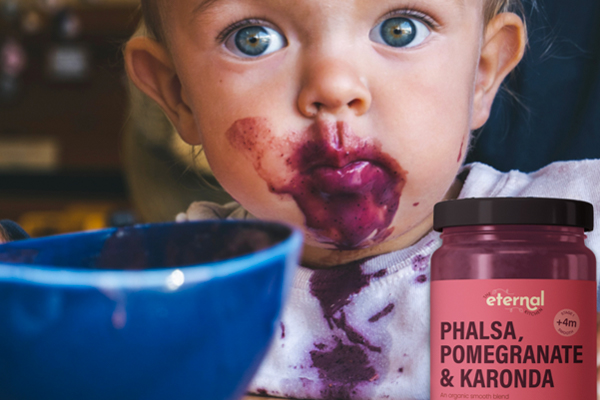 Molly Pincombe, Arts University Bournemouth, England
Molly Pincombe, Arts University Bournemouth, England
The Eternal Kitchen: A line of regenerative baby food that introduces uncommon ingredients that are more climate resilient.


[Working on the Student Design Awards] has reaffirmed my belief that the skills I have learnt as a student can be applied to the real world of design and have an impact.
